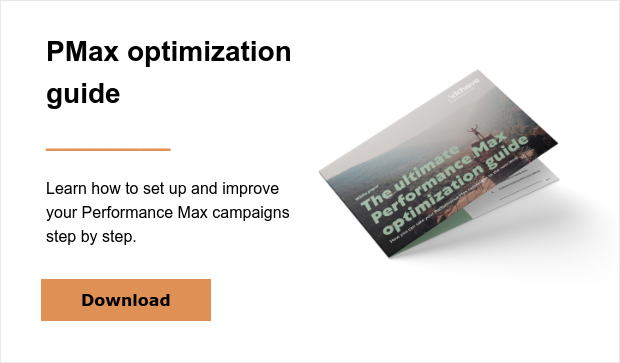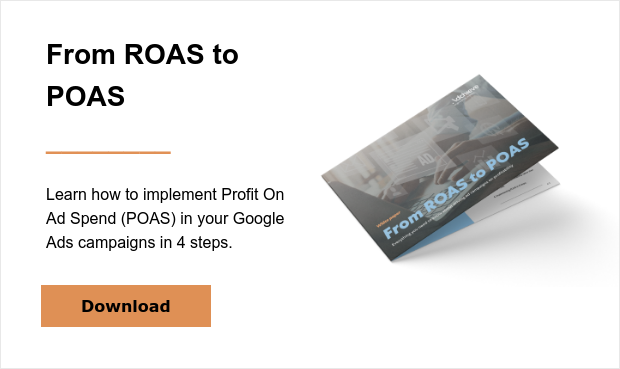With its ability to generate and understand text in an almost human way, ChatGPT offers a range of options for automating and optimizing Google Ads campaigns. The model takes user input, analyzes the context and generates an appropriate response or continuation of the text. But how does this translate in practice for Google Ads? And as a PPC marketer, how can you make the most of this innovative technology while avoiding potential pitfalls?
In this blog post, we explore the different ways ChatGPT can be used to enhance your Google Ads campaigns. We dive into the benefits, but also discuss the drawbacks and the best strategies to overcome these challenges.
Useful applications of ChatGPT for the SEA marketer
1. Text creation for ads
ChatGPT helps generate creative and compelling ad copy. Just be sure to include proper context and instructions. Specify the maximum number of characters and the appropriate tone-of-voice. If you are creating texts for a tough brand, a soft tone of voice is not appropriate.
Optionally, you can also include the URL of the landing page so ChatGPT immediately has the right context to come up with good texts. With all of ChatGPT's output, it is important to check it carefully for possible untruths. Therefore, always ask for multiple suggestions and select the best suggestions. Finally, ChatGPT can also suggest variations and A/B test ideas to identify better performing ad texts.
2. Analyses
ChatGPT helps provide suggestions of possible keywords and long-tail phrases. It also helps in analyzing keyword performance data to suggest optimizations or campaign layouts. Also, ChatGPT can be very useful to summarize competitors' ad strategies by analyzing available data.
3. Landing page optimization suggestions
ChatGPT contributes to landing page optimizations by generating creative and compelling copy, analyzing existing content and suggesting improvements. Among other things, ChatGPT generates catchy headlines and meta descriptions targeting specific keywords.
Also, it can create different versions for A/B testing. Specifying your current landing page and asking for suggestions for improvement can also provide useful insights.
4. Script creation
ChatGPT is also an ideal tool in helping to write, debug and optimize scripts for Google Ads automation. However, some script knowledge is necessary. ChatGPT often tends to always provide you with a complete answer, even though it may not always provide the right answer. Therefore, it is also useful to know in advance what is and what is not possible with scripts and what data you can extract from which report . Writing an entire script with a single prompt will therefore rarely work.
Instead, divide your question into several sub-questions. If your script does not work, use ChatGPT to fix your script. When doing so, indicate what error message you get back.
5. Reports
Finally, ChatGPT can create custom reports by pulling data from Google Ads and other platforms and help visualize PPC performance data. Always be careful about the data you share. Absolutely do not share privacy-sensitive information. This information may end up with the wrong people as a result.
Disadvantages
Unfortunately, using ChatGPT also has some drawbacks. Fortunately, by knowing these, you can avoid them in most cases.
1. Dependence on data
The effectiveness of ChatGPT depends largely on the quality and amount of data provided. Inaccurate or insufficient data can lead to incorrect suggestions. Therefore, be careful in your prompts and always provide proper context to the data.
2. Lack of human intuition
ChatGPT may lack the human intuition and experience that an experienced SEA marketer has, especially in understanding nuanced campaign goals and consumer behavior. Knowledge and experience in this area thus remains essential (fortunately for us SEA marketers).
3. Generalization
ChatGPT can sometimes provide general advice that does not apply to specific industries or unique campaign settings. All the more important to bring the right context to ChatGPT through the right prompt.
4. Risk of over-automation
There is a risk of relying too much on automation, which can lead to missed opportunities for human-led optimizations and creativity. Leaning too much on automation can lead to everything ending up in a black box that prevents you from answering the why question. While this can be very helpful to find out so you can get to the root of the problem.
5. Privacy concerns
Sharing sensitive campaign data with external platforms can raise privacy concerns and potentially violate data protection laws or guidelines. Also, this can cause the data to get into the wrong hands (read: your competitors), allowing them to take advantage of it.
6. Learning curve
There is a learning curve in understanding how ChatGPT is effectively deployed for PPC tasks, especially for those unfamiliar with AI and machine learning. Essential here is learning to write good prompts to give ChatGPT the right context.
.png?width=620&height=620&name=ChatGPT%20PPC%20ads%20(1).png)
Tips for getting the most out of ChatGPT
1. Prompt engineering
Prompt engineering is a technique in which SEA marketers carefully formulate instructions to ChatGPT to obtain the desired output. By creating clear and specific prompts, marketers ensure that ChatGPT generates relevant and useful ad copy, keyword suggestions or campaign analytics.
For example, instead of a vague prompt such as:
"create an ad",
a more detailed prompt such as:
"create a catchy ad text for athletic shoes targeting runners",
will yield better results. By clarifying the context and purpose of requests, marketers better leverage the power of ChatGPT.
2. ChatGPT Enterprise
Take advantage of ChatGPT Enterprise. The paid version of ChatGPT currently costs just $20 per month and offers SEA marketers numerous advantages over the free version, including:
- enhanced security and privacy features for handling sensitive data,
- faster and unlimited access to GPT-4,
- longer context windows for handling more complex queries,
- advanced data analytics capabilities for in-depth campaign analysis,
- customization options to better tailor the platform to specific needs,
- dedicated support and maintenance for smooth operation,
- early access to beta features for a head start in experimenting with new updates and features.
3. ChatGPT plugins
ChatGPT plugins can support SEA marketers in automating and optimizing their ad campaigns. Some interesting plugins include ad text generation, keyword performance analysis and automatic adjustment of bidding strategies.
There are also plugins that integrate with popular SEA platforms such as Google and Microsoft Ads and Google Sheets, making it easy to analyze campaign data and suggest optimizations. If you want to analyze data, then the Advanced Data Analysis plugin is essential. Want to use actual data? Then use the Browse with Bing" plugin.
4. Continuous learning
Stay up-to-date on the latest features and best practices in both PPC marketing and AI tools like ChatGPT to maximize benefits. In doing so, collaborate with other PPC professionals and share experiences and insights on using ChatGPT to manage Google Ads. This is because of the currently rapid number of changes in this area.
5. Experimentation
Experiment with different strategies and configurations to find what works best for your campaigns and learn from the results. In doing so, tailor the use of ChatGPT to the specific needs and goals of your PPC campaigns for better performance. Set up a feedback loop to continuously improve the AI's performance by providing feedback and corrections based on the output received.
6. Data Privacy
Finally, as a final tip, ensure thorough understanding and compliance with privacy laws and guidelines when sharing campaign data with external platforms. Hide data if necessary so that it cannot be identified.
Conclusion
ChatGPT promises PPC marketers many advantages in managing Google Ads campaigns, with challenges such as data dependency and privacy concerns. A balance between ChatGPT's automated efficiency and marketers' strategic insights leads to better campaign effectiveness and ROI.
With ongoing adaptations and collaboration within the PPC community, ChatGPT provides a path to innovation and growth in online advertising.



.png)

